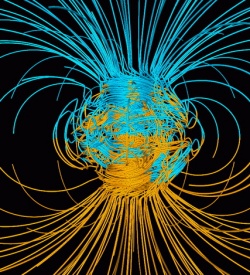Buddhism and evolution
As no major principles of Buddhism contradict it, many Buddhists tacitly accept the theory of evolution. Questions about the eternity or infinity of the universe at large are counted among the 14 unanswerable questions which the Buddha maintained were counterproductive areas of speculation. As such, many Buddhists do not think about these kinds of questions as meaningful for the Buddhist goal of relieving oneself and others from suffering. One does not need to know the origin of life, nor agree with the Buddha's position on scientific topics, in order to achieve enlightenment.
Anagarika Dharmapala once stated that "the theory of evolution was one of the ancient teachings of the Buddha."
In the Majjhima Nikaya, a potential follower asks the Buddha for an answer to the problem of cosmogony:
"Suppose someone was hit by a poisoned arrow and his friends and relatives found a doctor able to remove the arrow. If this man were to say, 'I will not have this arrow taken out until I know whether the person who had shot it was a priest, a prince or a merchant, his name and his family. I will not have it taken out until I know what kind of bow was used and whether the arrowhead was an ordinary one or an iron one.' That person would die before all these things are ever known to him."
The Buddha argued that there is no apparent rational necessity for the existence of a creator god because everything ultimately is created by mind. Belief in a creator is not necessarily addressed by a religion based on phenomenology, and Buddhism is generally accepting of modern scientific theories about the formation of the universe. This can be argued either from the standpoint that it simply does not matter, or from an interpretation of the Agañña Sutta favoring the notion that it describes the basic concept of evolution.
Agaña Suta
In the Aggañña Sutta, found in the Pali Canon, the Buddha does appear to give a highly detailed answer to this issue. The Buddha, speaking to the monk Vasettha, a former Brahmin, states the following:
‘There comes a time, Vasetha, when, sooner or later after a long period this world contracts. At a time of contraction, beings are mostly born in the Abhasara Brahma world. And there they dwell, mind-made, feeding on delight, self luminous, moving through the air, glorious—and they stay like that for a very long time. But sooner or later, after a very long period, this world begins to expand again. At a time of expansion, the beings from the Abhasara Brahma world, having passed away from there, are mostly reborn in this world. Here they dwell, mind-made, feeding on delight, self-luminous, moving through the air, glorious— and they stay like that for a very long time.
At that period, Vasetha, there was just one mass of water, and all was darkness, blinding darkness. Neither moon nor sun appeared, no constellations or stars appeared, night and day were not yet distinguished, nor months and fortnights, nor years and seasons; there was no male and female, beings being reckoned just as beings. And sooner or later, after a very long period of time, savory earth spread itself over the waters where those beings were. It looked just like the skin that forms itself over hot milk as it cools. It was endowed with color, smell, and taste. It was the color of fine ghee or butter and it was very sweet, like pure wild honey.
Because the Buddha seems to present a model of cosmology wherein the universe expands and contracts over extremely long periods of time, this description has been found by some to be consistent with the expanding universe model and Big Bang. The Buddha seems to be saying here that the universe expands outward, reaches a stabilising point, and then reverts its motion back toward a central point resulting in its destruction, this process again to be repeated infinitely. Throughout this expanding and contracting process, the objects found within the universe undergo periods of development and change over a long stretch of time, according to the environment in which they find themselves. Following this passage above, the Buddha goes on to say that the "beings" he described in this paragraph become attached to an earthlike planet, get reborn there, and remain there for the duration of the life. As a consequence of this, physical characteristics change and evolutionary changes takes place. This is often interpreted as a very rough theory of evolution. Furthermore, the Aggañña Sutta presents water as pre-existent to earthlike planets, with the planet forming with water and the life moving from the water onto the earth. The Buddha does not talk about a specific earth, but about earthlike planets in general.
Spiritual evolution
Main article: Spiritual evolution
The concept of spiritual evolution has been taught in Buddhism. William Sturgis Bigelow, a physician and Buddhist, attempted to merge biology with spirituality; he accepted the existence of both material and spiritual realms. Many of his ideas were discussed in his book Buddhism and Immortality (1908). Bigelow used the concept of natural selection as a mechanism for evolution. According to Bigelow spiritual evolution is when an individual emerges from "unconditioned consciousness" and "moves up the scale of evolution guided by natural selection". Next the individual moves to a level of celestial experience, and finally is able to "return to the unconditioned consciousness from which all things emerge." Bigelow accepted both material and spiritual evolution; he believed Buddhism and science were compatible.
Albert Low, a Zen master and author of The Origin of Human Nature: A Zen Buddhist Looks at Evolution, (2008) opposes neo-Darwinism and the selfish gene as he claims they are materialistic. He also opposes creationism for being dogmatic and instead advocates spiritual evolution.



